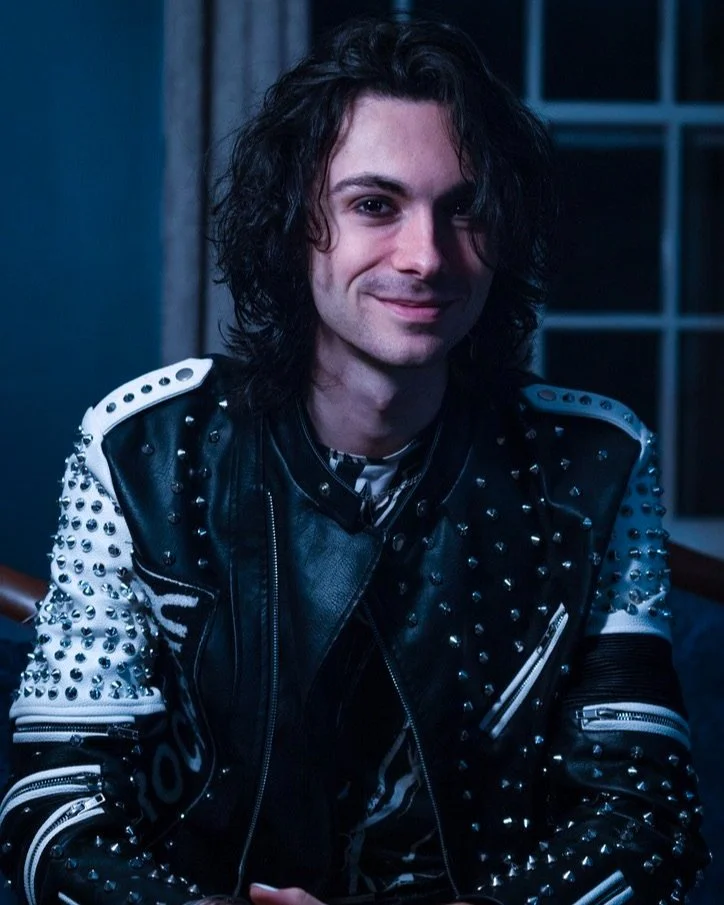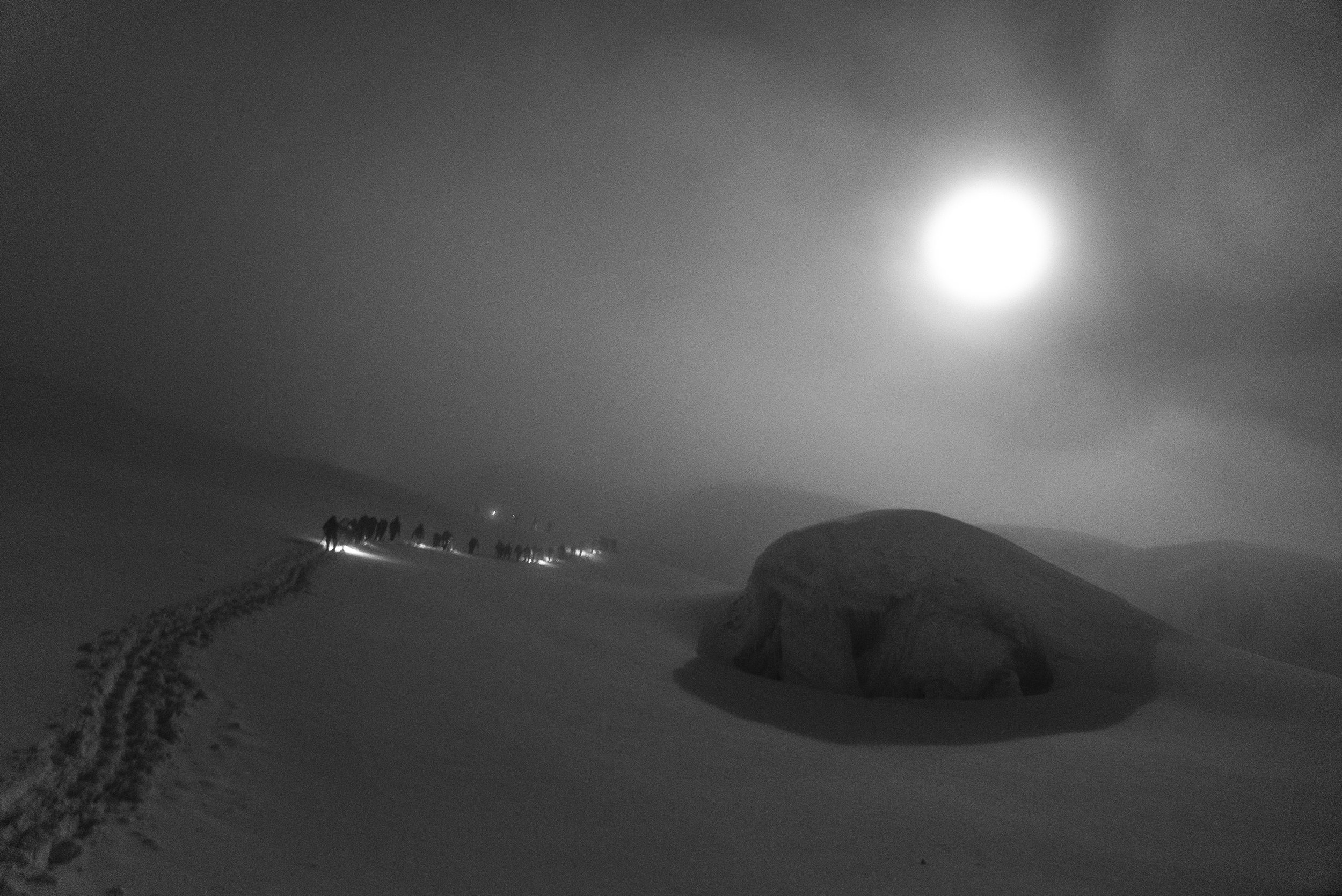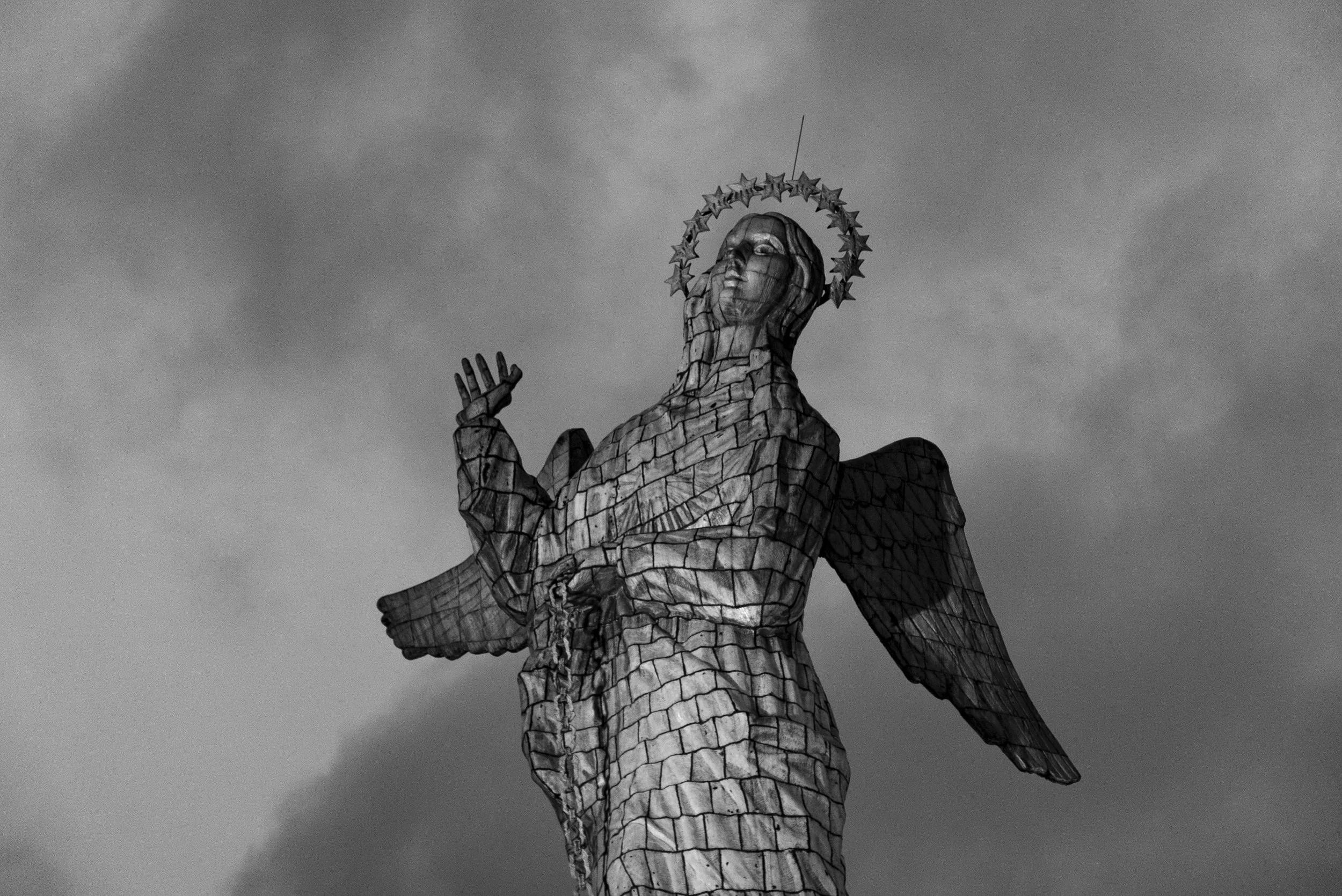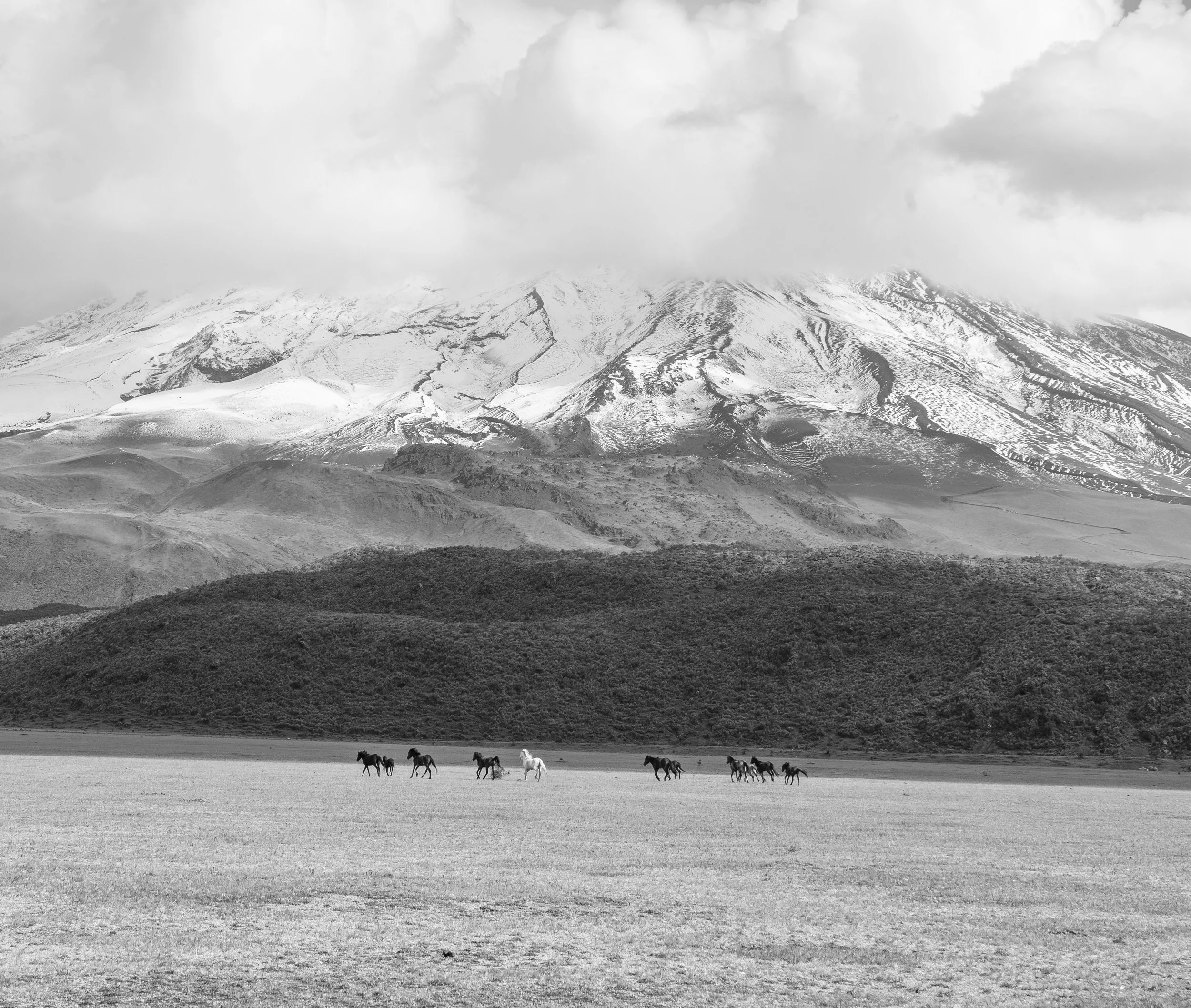november 30, 2022
Niko Stycos: Capturing moments, Still and moving
STORY BY Gracie Gallagher / edited by olivia mckeon / Copyedited by Julia Digeronimo
Nikeratos Stycos (‘23) is a New York based director, cinematographer, & video editor. In 2020 he founded his own cinema/photo company, Iconicapture. Under that name he has crafted content for high end pro-audio companies such as Dangerous Music, Manley Labs, Audio Alchemist, as well as editing music videos for recording artist/songwriter Gigi Grombacher. He also directed two short films, one of which is currently in post-production. During his time off, Niko has traveled to over 17 countries with his camera– hiking, backpacking, and climbing through deserts and up nineteen thousand foot active volcanoes.
Gracie Gallagher sat down with Nikeratos Stycos to discuss his multi-media work, exciting international travels, and significant influences.
GG: Tell me about the kind of work you do.
NS: I dabble in a lot. I don't like doing one thing. But my main things I do right now, for work at least, is a lot of video editing for audio companies, which deals with recording and mixing and mastering music. I do a lot of promotional videos for them. I also shoot their cinematography, and I do a lot of gear photography for those companies. They make the compressors and microphones and speakers, and they sell their gear to artists, producers and mixing engineers. Lady Gaga is using Dangerous Music's gear right now on tour. Billie Eilish uses some of their compressors on her songs.
I'm on a bunch of film sets right now. I was just head grip on Michael Salvino’s set, which was really cool. Super professional set––a couple of big actors on––and everybody's really nice. So, that was great. I got to build a whole camera crane with a remote head on top and also a whole dolly and then he let me do a bunch of the shots. I actually got to work on the cinematography for those as well.
I do a bunch of traveling to other countries. I've been to over 17 countries, backpacking with my dad. I bring my camera along and take a bunch of pictures and post those––that's more for fun. But I would love to sell those someday. Just this past spring we went to Ecuador and hiked up multiple volcanoes leading up to the biggest one, Cotopaxi, which was like 19,000 feet. And that's an active volcano so the sulfur is coming out, it's crazy.
GG: Oh my gosh, did you train for that?
NS: We got there some days early. So, we did three peaks before that one, which were a little shorter just to get acclimatized. But other than that, not really.
That was a really beautiful mountain, took a lot of photos there. We slept over at this lodge part way up in the mountain. Then at 1am, we started the hike, which was after everybody else had started, including trainees from the Ecuadorian army.
It was just me, my friend, and my dad with our guide, and we were the last group to start. By the top of the mountain, we were with the first group, so we passed everybody, including the army and got to the top first, which is crazy.
GG: That's really cool. You work with so many different art forms, like photography, directing, and cinematography. Was there one in particular that you were drawn to first? And is that still the same one that you are primarily interested in?
NS: I’d say my first one I was drawn to was photography. I was really little when my dad's coworker gave me this tiny camera. It was only seven pictures, and I took them and then I loved it. When I was nine my cousin gifted me this little Fujifilm camera, a little point and shoot. I just took so many pictures, probably hundreds, maybe thousands of pictures, because we went backpacking through the Scottish Highlands. It was the most beautiful thing ever. I fell in love with photography there because you really need the location as well. Like, I can be interested in photography, but if I don't have anything inspiring me to take photos, I'm not going to be interested. So, you need the interest in it, as well as the cool locations or subjects to take photos of.
That’s where I started. Then my dad saw I liked that, so he got me a little bit of a better point and shoot camera, and I used that for a couple years. Then we went hiking in Zion National Park and I lost my camera. I felt terrible. My dad obviously knew I loved it, so he got me a really good Sony camera which I have now. Then the day he was about to give it to me, I found the old one at the bottom of my backpack.
Photography is definitely what I fell in love with first, and it's definitely my favorite thing. But I love cinematography because that kind of goes hand in hand. And now directing––I've directed two short films. Last semester was my ACP [Advanced Cinema Production] that I directed, called Karma. Then this semester, I just directed my thesis, which is called What We Deserve. So, I've done two big directing things so far, and it's been great.
GG: How do you think your directing, cinematography, and photography inform one another and inspire one another? I'm wondering about the kind of interaction between all those different forms.
NS: They all work hand-in-hand. It's great to know all the different types of things, like I just had a grip, so that's another good part to know. Especially when you're a director, it's good to know all the different roles. You want to understand them, that way you can communicate with the different department heads and all the people working in different spots. When I'm directing, it's great to know cinematography because then I can really see the shots. Same with photography. They go hand-in-hand, so I can explain what I want very clearly because there are tons of different types of directors who don't even know the lingo––ISO or F stop. It's really good to know so you can communicate better because communication on set is everything. If you can't communicate, then you can’t make a film.
GG: In terms of going into a session––a photography session, or even going to set when you’re a director––do you always have a clear vision of how things are going to go? Do you always stick to your vision?
NS: I always say go in with a plan, and then make a new plan.
GG: I love that.
NS: I always want to go in with a plan, that way you’re not stressed. So, you have that backup. But once you're on location, at least, I usually get inspired, and I change up my ideas, to some extent. If I'm on a film set, I'm not going to change everything because you need the plan. But when you're there, you're like, oh, here's a better framing or the actors are doing this cool thing that you want to add in. With photography, it's more just going with the flow. I like feeling the inspiration in the location with the person. I'll have a little rough sketch or something, but a lot of the time I’ll find something else that will end up being a better photo than the first one, right? Making a film or cinematography or promo videos are a lot more planned out, otherwise it's going to be a mess. But once you're on set, you can change it up a bit and meld it to what you really want to see in your image.
GG: Being an artist, I feel like there's a lot of self-doubt. I'm wondering how you deal with that.
NS: I definitely face a lot of anxiety; I put on a confident front. Confidence really is key in our world. If you meet somebody and they're super confident, you're immediately going to have a tendency to like them and just be more comfortable around them. I definitely put on the front. Obviously, I get super nervous or anxious sometimes, even if there's no reason to. Going to these sets, I'll be nervous beforehand just because it feels like it's a lot of pressure and being head of the grip department––that's a lot of responsibility. If the camera crane doesn't work, then boom, you're going to ruin their shots. I think it's just going in with, hey, stuff is going to break, stuff is going to happen. I can't do anything about that. But what I can do is do my best to fix it. And that's why I'm here, because the director trusts me, and I have solved his problems in the past, and I'll do it again.
It's telling yourself things are always going to go wrong, at least on film sets because they always do. That's why we have a big, really strong crew to fix those problems. I feel like I'm a very good problem solver. So, I'm usually able to deal with that or work my way around it, even like on this past set. The remote head, a little controller which moves the camera, wasn't working and it was not maxed over its weight. So, we had to take some stuff off the camera and rebalance and everything and took a little bit, but we got it fixed. I was a little anxious there but yeah, push through.
It's about surrounding yourself with positive people who are excited about the project and who are also working hard. Pushing yourself and making sure you're sleeping, you're eating and, just telling yourself, it's okay, things are gonna go wrong, but you'll push through and have a good time. It's really about just enjoying the process.
GG: Who are some of your inspirations with photography or directing or cinematography?
NS: Let's see. So recently, actually, I was watching this livestream on Instagram of Yungblud. I like his music. He’s just so positive and exciting and filled with energy, and I was really vibing with it. It just hit me in the livestream like, oh my gosh, I want to go to his concert. So, on the spot, I bought concert tickets to his show in New York. I went to that, and I met a lot of really cool people and made a bunch of friends and had one of the best nights I've ever had.
Anyway, I had been following his photographer on Instagram, Tom Pallant––a really cool guy who mainly shoots on film. I just fell in love with his photography, really cool grunge aesthetic. I followed him and then at the concert, I actually got to meet him. He signed my jacket and stuff, which is really cool, and he responded to me on Instagram. He has like a million followers; he's the real deal. So, I started looking for photographers who take photos of artists and musicians.
I found this guy, Damon Baker, who also has a lot of followers on Instagram, and he's probably my all-time inspiration and my favorite photographer. It's hard to explain what he does, mainly just black and white. How he captures the essence of people is so beautiful. It's like he's really just capturing who they are, what they're feeling, the true essence of their emotions. I feel like a lot of photographers, if it's a portrait or something, it's going to be just smiling, but somehow, he really captures who they are in this black and white photo. I love it. So, he’s probably my biggest inspiration.
In terms of just inspirations in life, my dad is amazing. He’s so talented. He works so hard, all day, every day. He started his own company and he’s built it up and bought a couple other companies now. He’s pushed me to learn a bunch of new skills and go hiking and backpacking in different countries. Also, my grandfather. He was a sociologist at Cornell. He would travel to a bunch of different countries, especially ones that you weren’t allowed to go to back in the day, like Cuba. He actually traveled there to study overpopulation. He brought his camera, and he would take photos everywhere he went. I grew up going to his house, probably once a month at least, and I'd be eating in the dining room with him and his photos all over the walls. And it's all in black and white, because it's on film. It's just all of these people doing their normal everyday things, but it's in all these different countries with these different cultures. So that definitely inspired me to love portrait photography.
GG: Do you find yourself more drawn to the traditional film photography and traditional art forms or are you more geared towards the newer, digital way of capturing?
NS: I just took intermediate photography last semester, which is like learning how to shoot on film. I love using film for photography, but it's very expensive and it's time consuming and if you mess it up, it's gone forever. So, I pretty much stick to my Sony A7S II, which I’ve had for years that never failed me. It’s reliable. It’s easy to use. I got a bunch of batteries for it so I can just bring it anywhere. That’s the reason I stick with that. If I had more money, I would probably do more film photography. But at this point, it’s just easier to stick with the digital and it looks great, and I have no issues.
GG: Do you think the ability to capture someone in a photograph––does it all boil down to just luck and snapping the camera at the right time? Or do you think it sort of comes with experience and working with subjects and working on your craft?
NS: It depends on what you're doing. If you're in a studio taking photos, which is what Damon Baker does, then it's really about having personable skills and being able to make the subject feel comfortable and really learning about them. Understanding who they are and maybe giving a little bit of yourself to them to understand, so they can trust you and let their guard down a little bit. In a studio, it's really about communicating with and getting to know them and taking some time. Photography isn't about taking the photo. It's just as much about the research and the prep time. But then again, if you're out doing street photography in another country, that's more about patience. That's more about waiting for the right photo. You have to be able to find the frame and find the person and see what they're doing and pick the right shot. It's about communicating with other people.
GG: What are your plans for the future? Do you see yourself staying in Ithaca or traveling more? What do you think’s next?
NS: My dad grew up here, so I grew up visiting a lot. I love the area, it's beautiful and very inspirational for art. That's why I ended up coming here for college. But I don't think I'd stick around after college here. My perfect world would be to live a little bit outside of New York City where I have this space in nature to relax after a long day of doing work or being in a film set or photoshoot. You can unwind with nature because just getting out is so helpful for your health. My dream would be to find a band and be able to tour with them and do all their photos and video work and press. I would love to just be one of the guys and go on tour because I love traveling, so it'd be perfect, right? I think that'd be at least what I want to do for like a year or two. Obviously, I have to find a band. That might not be the immediate thing I do.
There's a lot of things I want to do, and I'm not really worried about pursuing one in particular. I just kind of want to do a bunch of them. I already started my own company during COVID, called Iconicapture, so I have my own video photo production company already. I think I'm just gonna keep working with these Pro Audio companies on their media and keep actively looking for bands because I reach out to a bunch of people on Instagram all the time. Worst case scenario, I just make a new connection, right? I think I'm gonna hopefully find a band and tour with them or just keep making fun videos and short films and things like that. See where the world takes me because I don't really want a set plan.




